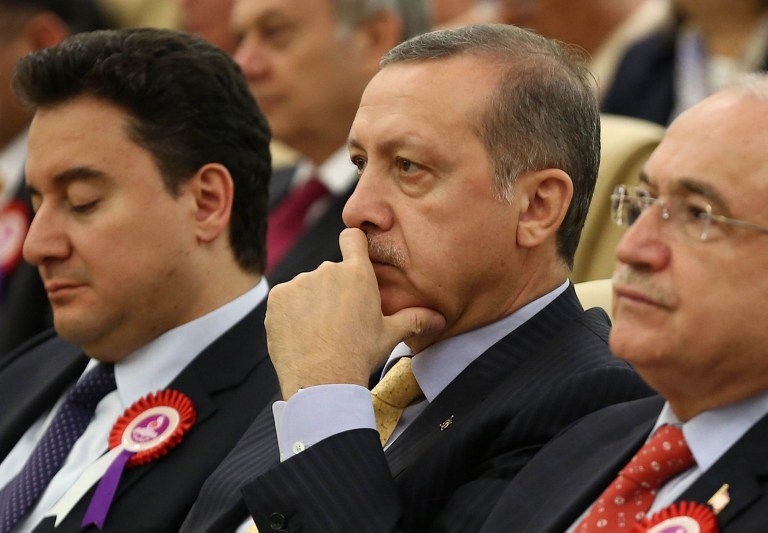Turkey PM seeks Gulen's extradition from US

Turkey will launch proceedings to seek the extradition of exiled cleric Fethullah Gulen from the United States, local media quoted Prime Minister Recep Tayyip Erdogan as saying on Tuesday.
Erdogan said a legal procedure "will begin" for the extradition of Gulen, a former ally whom the prime minister now accuses of masterminding a corruption scandal aimed at unseating the government.
After his party scored a crushing victory in last month's local polls, Erdogan hinted that he would take steps against the movement which insiders say still has support in every corridor of Turkish power.
The prime minister's comments came a day after he told US broadcaster PBS in an exclusive interview that he wants President Barack Obama to deport Gulen and send him back to Turkey.
In the interview, Erdogan said he hopes Washington would deliver on the issue as a "model partner" should. "At least they should deport him," he said.
Stay informed with MEE's newsletters
Sign up to get the latest alerts, insights and analysis, starting with Turkey Unpacked
The Gulen movement was a key backer of Erdogan's Islamic-rooted Justice and Development Party (AKP) when it first came to power in 2002.
The two were allied with the aim of taming the influence of Turkey's once-powerful military which staged three coups since 1960 as the self-declared guardians of the secular state.
But the alliance shattered after December police raids which saw dozens of Erdogan's key business and political allies detained on allegations of bribery.
Erdogan, who has dominated politics for 11 years, has repeatedly accused so-called Gulenists -- many of whom hold key posts in the police and judiciary -- of being behind the graft probe and retaliated by sacking thousands of police and prosecutors.
Middle East Eye delivers independent and unrivalled coverage and analysis of the Middle East, North Africa and beyond. To learn more about republishing this content and the associated fees, please fill out this form. More about MEE can be found here.




